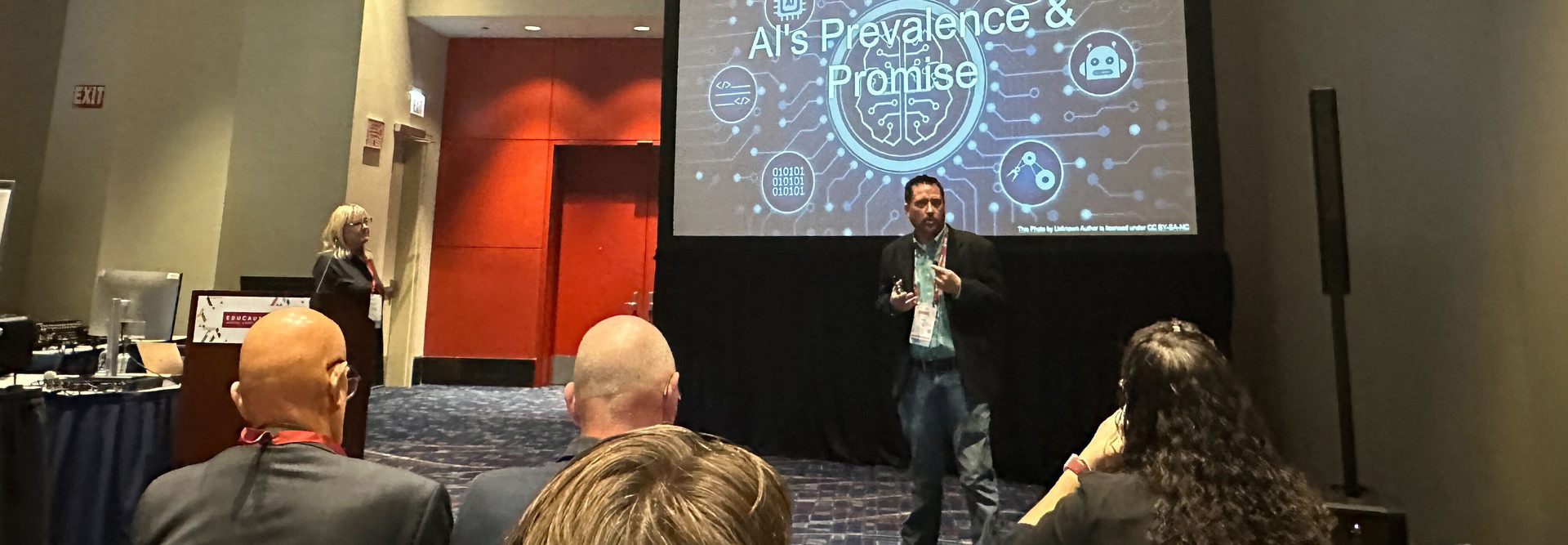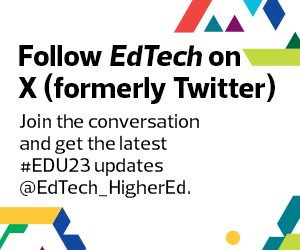AI’s application in higher ed can span departments, from automating IT tasks to helping with administrative work. But it also has potential applications in teaching and learning. While many experts focus their AI insights and research on academic integrity, many of the EDUCAUSE sessions instead focused on the potential impact on student learning outcomes.
“Academic applications might include assessment reform,” Grajek says. “They might include developing course materials for introductory courses and tutoring.”
AI Supports Today’s Higher Education Landscape
In a session titled “The End of Business as Usual: Embracing Generative AI within Higher Ed,” Rich Pushard, product portfolio manager for higher education at CDW, gave a comprehensive overview of generative AI’s potential in higher ed.
Higher education institutions are adapting their course offerings to support the fourth Industrial Revolution, which places an emphasis on AI, automation and machine learning technologies. Producing graduates with marketable skills in these areas is vital for colleges and universities.
“If you think about professionals today, and you think about how technology changes, how do you support those learners who went through your institution?” Pushard said. “How do you reframe that investment proposition in a way that you're making sure they're equipped with the skills they need?”
EXPLORE: Learn more about how AI is impacting higher education.
The traditional academic experience of even a decade ago has changed, Pushard said. Students are embracing the flexibility that today’s institutions offer, and these institutions must adapt accordingly, in many cases supporting “just-in-time learning,” he said.
AI can support competency-based education models in which students are able to learn at their own pace, Pushard said. This individualized progression through classes helps personalize the learning experience and allows students to complete their education on their schedule.
“How do we make sure that we're engaging students to a level that not only creates success, but changes the nature of learning,” Pushard said. “If you think about how our courses are constructed right now, many people are getting new information from one source. AI has the capability of potentially putting many sources into one so you can individualize that learning experience via technology.” Many schools, such as Western Governors University, have adopted this model, he said.
AI Helps Enable Adaptive Learning
Analyzing the data from AI-enabled courses can help instructors identify patterns in student success and engagement. For example, Pushard said, if suddenly a group of year-three accounting students is doing poorly in an advanced class, data from their freshman year might reveal insights into why.
In curriculum development, this type of data analysis can help instructors modify their courses each semester rather than just rolling over the course content from one term to the next.
“You can understand what student progress looks like, what you can supplement accordingly, and take adaptive learning to an entirely different level where new resources are being infused into that student’s experience digitally based upon what that circumstance is,” Pushard said.
Click the banner below to access exclusive content as an Insider.













